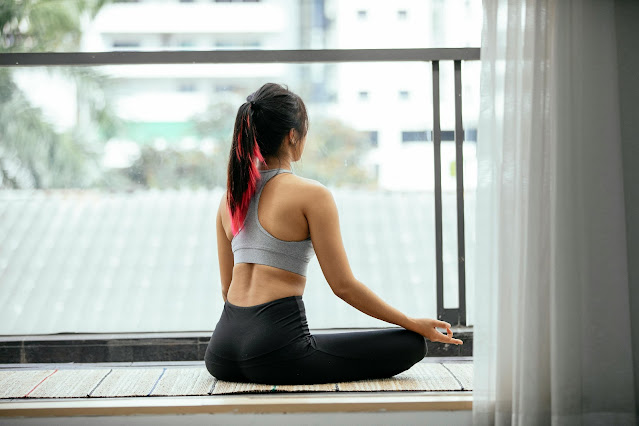Mindfulness is indeed the way that leads to improved mental health and lifetime quality. This type of consciousness in the present moment minimizes ruminations and boosts concentration which ultimately makes an individual peaceful and satisfied. Here are the 10 mindfulness practices that you can easily apply to your daily life:
 |
| Photo: Pexels |
Mindful Breathing
This is a very simple technique that is always available, of course. Just take a few minutes to breathe deeply, focusing your attention on the sensation of the air moving in and out of your body. Even just a minute of mindful breathing while at your desk or in line at a store can help quiet your mind and focus your thoughts.
Mindful Eating
Most of the time, we rush through our meals, not really 'experiencing' the meal. It means slowing down to really taste and feel each bite. Keep the distractions—phone calls, texts, emails, TVs—away and focus on eating. Be mindful when you feel hungry and full.
Mindful Walking
turn everyday walks into mindful exercises. Feel present in the step, feel the feet touching the ground, the natural sway of the body in a walk. Notice everything around—the sights, sounds, and smells. Such practice helps reduce anxiety, brings one closer to nature, and fosters appreciation.
FAQ: How long should I do my mindfulness exercises?
There isn't a magic number; a few minutes a day will do. Do it for as little time as you are comfortable, and gradually extend the time as your comfort level rises.
Loving-kindness Meditation
Loving-kindness meditation cultivates warm, compassionate feelings toward oneself and others. Through silent wishing, begin by wanting good things for yourself—"May I be happy, may I be healthy, may I be safe." Gradually include those with whom you are close, then acquaintances, and even people you struggle with. As you learn to give yourself compassion, negativity will dissolve, and you'll feel more closely connected with others.
FAQ: What are the Benefits of Loving-kindness Meditation?
Loving-kindness meditation encourages self-acceptance and kindness, which in turn helps lessen negativity and cultivates a sense of interconnection with other beings.
Body Scan Meditation
This is a type of guided meditation whereby you need to take your awareness of the body parts systematically from toe to head. Observe any sensations with no judgment at all. Additionally, this type of practice lets you become much more observant about the sensations physically felt from within the body and will help find out areas that are holding stress.
FAQ: How Often Should I Do a Body Scan Meditation?
You can do a daily or several-time-a-week body scan. The key is to be consistent with this practice.
Gratitude Journal
Gratitude works as a great antidote for negativity. Start keeping a gratitude journal where you jot down three things every day for which you are grateful. It could be anything—from beautiful readings at sunrise against a colorful sky to some kind of deed done by any person or health. Focusing on the positives in life is vital for a better mood and self-esteem.
Mindful Media Consumption
Protect yourself from negativity amidst information overload. Be careful about the kind of media that gets into your life. Take a minute to consider whether scrolling through certain social media or watching some news programs might put you in a bad mood. Select media that inspire and uplift you.
Mindful Communication
Deep listening and conscious speaking characterize effective communication. Always be present in the conversation, listen without interrupting or judgment, and use words carefully to protect people from hurting each other. This creates an understanding and binds people together.
Mindful Working
It will enhance your productivity and make the time at home or in an office much more pleasant. Take breaks—small fractions of minutes—to check in with your body. Notice tension; take breathing to let it go. Bring focus and intention to the tasks at hand. Mindfulness in work reduces stress, opening space for creativity and improving focus.
Mindfulness Sleep
Having some quality sleep is essential for the body and mental well-being. Conduct relaxing activities before going to bed, like light stretches reading, or a short meditation session. Avoid screens and other over-stimulation before going to bed and keep your bedroom comfortable and quiet. By putting a little more priority into your sleep, you will wake refreshed and empowered.
Practice these mindfulness exercises to live a more mindful, fuller life. Keep in mind that even the smallest steps taken toward that end are very significant. May this journey of learning mindfulness include the enjoyment of new positive changes for your mental, emotional, and physical health.
Tags:
Lifestyle
